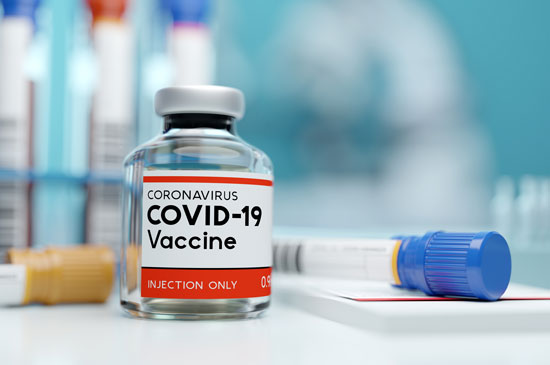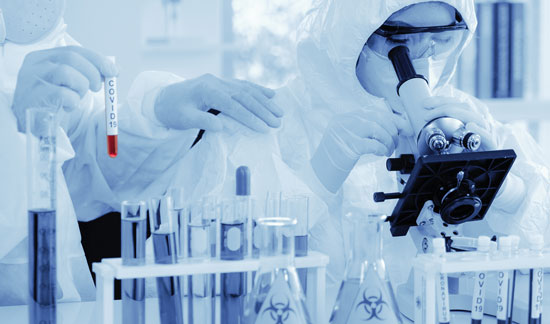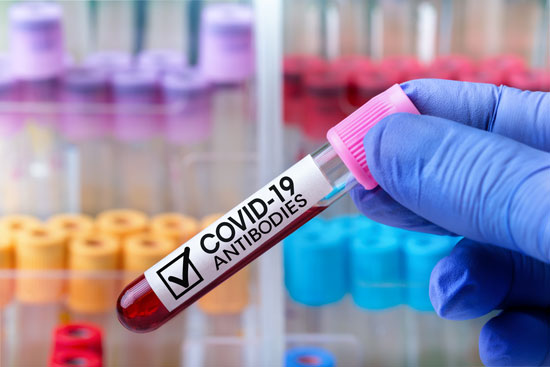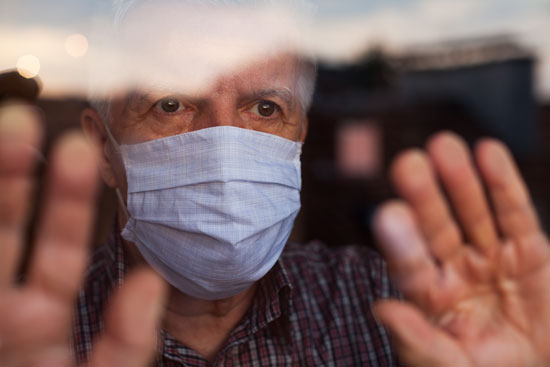
Due to the age-related weakening of their immune system, elderly people are naturally more susceptible to various infectious diseases and their serious complications. In terms of COVID-19, the elderly is the most vulnerable segment of the population. Statistics show that the level of coronavirus mortality is the highest in people who are 65 years old and older. Their immune systems are simply no longer able to “fight” the virus as well as younger people’s immune systems. This is why, when it comes to the COVID-19 vaccine and elderly, the development of this vaccine is so important for the protection of our defenseless elderly.
Multiple Companies Are Engaged in COVID-19 Vaccine Clinical Trials

Medical scientists throughout the World work non-stop to develop a COVID-19 vaccine. Over 120 private pharmaceutical and biotechnology companies, government research organizations, and educational institutions are involved in various phases of COVID-19 vaccine clinical trials.
At this point, only one COVID-19 vaccine has been formally approved for public use. In August of 2020, the Ministry of Health of the Russian Federation had approved the “Sputnik V” vaccine. This vaccine, which was also referred to as “Gam-COVID-Vac”, was created by the Gamaleya Research Institute in Moscow.
Some companies have estimated that they would complete the COVID-19 vaccine development by early 2021 or even before 2020 ends. For example, U.S. pharmaceutical giant Pfizer, jointly with German company BioNTech SE, is hoping to conclude its vaccine testing by the end of October of 2020. Pfizer’s clinical trials involve approximately 29,000 people. Pfizer’s main competitor in the COVID-19 vaccine race is Moderna Inc. Biotechnology company Moderna is planning to conclude its Phase III clinical trials, which also involve around 30,000 people, by November of 2020. Other two pharmaceutical Goliaths, Johnson & Johnson and AstraZeneca, are similarly optimistic that their vaccine trials will be successfully concluded by the end of the year 2020.
It is a tremendous effort on the part of the vaccine developers to create a COVID-19 vaccine under such a tight timeline. Traditional vaccines use an injection of a very small amount of a virus, which activates the person’s immune system. In order to create a traditional vaccine, a weaker version of the virus is grown in chicken eggs and then tested for successful creation of antibodies. This process can take years to complete. In general, it takes a minimum of four years to completely develop and test a traditional vaccine. For some viruses, the vaccine development process can take as long as ten years.
This is why several companies, such as Moderna and Pfizer / BioNTech SE, are in the process of developing and testing COVID-19 vaccines that involve a completely new technique used to elicit an immune response. The new COVID-19 vaccine technique works through the synthetic messenger RNA (mRNA). Messenger RNA [ribonucleic acid] is a molecule that “carries” genetic information and instructions. An mRNA-based vaccine uses an artificially-created RNA of the virus that makes the immune system “think” that the virus is present in the person’s body and it needs to be attacked with antibodies. According to scientists, unlike a traditional vaccine, an mRNA vaccine can be developed relatively quickly.
A collaboration has been formed between the U.S. Department of Health and Human Services (HHS) and several private companies. This partnership, entitled “Operation Warp Speed” (OWS), involves the U.S. National Institutes of Health (NIH) and almost 20 private biopharmaceutical companies. The goal of OWS is to expedite the development of the COVID-19 vaccine.
COVID-19 Vaccine and Elderly – Will the Vaccine Be Effective?

The successful development of a COVID-19 vaccine and elderly population’s benefit from this vaccine is a major issue in the scientific community. One of the key goals for the developers of the coronavirus vaccine is to make sure the vaccine is effective and safe for older adults and the elderly. At this point, different vaccine developers have reached various levels of success in this regard.
In August of 2020, at a meeting before the Centers for Disease Control and Prevention’s (CDC) Advisory Committee on Immunization Practices (ACIP), Moderna presented the results of its COVID-19 vaccine clinical trials. The tested vaccine, which is called “mRNA-1273”, is administered in two doses – one initial injection, and then another injection one month later. The presented results, which involved a group of elderly people and older adults, demonstrated that the neutralizing antibodies against the COVID-19 virus (formally referred to as “SARS-CoV-2”) were produced as follows:
- 10 people in the 56 to 70 age group: all patients produced antibodies; and
- 10 people in the 71 and older age group: all patients produced antibodies.
This result was comparable to Moderna’s previous study, which involved 45 younger adults.
In terms of a vaccine’s efficacy, for typical respiratory viruses, a high level of vaccine-induced antibodies is associated with providing protection against the virus. The scientists’ hope is that the same “vaccine mechanism” will protect against the novel coronavirus [SARS-CoV-2]. When Moderna compared the levels of antibodies that were (1) produced by the COVID-19 vaccine and (2) naturally generated by the immune system in those people who had recovered from COVID-19, these were the results:
- Elderly and older adults: vaccine-induced levels of antibodies were 2-3 times higher than the levels of antibodies in the recovered COVID-19 patients
- Younger adults: based on the results of two tests, vaccine-induced levels of antibodies were 4 times [in one test] and 2 times [in another test] higher than the levels of antibodies in those who recovered from COVID-19.
The clinical trial participants did not develop serious side effects. In terms of side effects, the vaccine being tested by Moderna was reported as inducing the following side effects in both younger as well as older adults / elderly patients who participated in the clinical trials:
- injection site pain;
- headaches;
- chills;
- muscle pain; and
- fatigue.
Scientists in other countries are also involved in comparing the efficacy of COVID-19 vaccines between younger adults and older / elderly people. For example, a prominent biopharmaceutical company in China, Sinovac Biotech Ltd., reported its preliminary results with respect to the COVID-19 vaccine this company is developing [“CoronaVac”]. Sinovac conducted several clinical trials of is vaccine and tested it on adult patients in two age groups: (1) 18 to 59 and (2) 60 and older. Sinovac reported that CoronaVac demonstrated comparably positive results in both age groups in terms of safety and the levels of vaccine-induced production of antibodies.
Until a Vaccine is Developed and Approved, Our Elderly Remain Vulnerable

Sooner or later, a COVID-19 vaccine will be developed and approved for use in the United States. It’s a certainty. When will it be completely developed, approved, and offered to the public? There is no easy answer to this question. As you can see based on the above discussion, multiple factors affect the timeline of the COVID-19 vaccine development.
Scientists are doing their best to create, test, and perfect the vaccine. However, as of now, there is no COVID-19 vaccine and elderly residents of California’s nursing homes and assisted living facilities are still at high risk of serious complications and death from this horrible virus. Long-term care institutions must be vigilant in their efforts to prevent individual infections and outbreaks.
Since the early 2020, the rate of COVID-19 related deaths at elder-care institutions has been tragically high. If these fatalities are the result of the failures to implement and follow infection control protocols, such misconduct would represent elder abuse and neglect on the part of the assisted living facilities and nursing homes in Los Angeles. For more information, please read this firm’s pages on nursing home infections and COVID-19 (coronavirus).
Take Action! Promptly Contact a Lawyer for a Free Consultation
If you suspect a facility’s wrongdoing related to the COVID-19 infection or the wrongful death of a loved one, please call or fill out an electronic contact form today to request a free consultation. Cherepinskiy Law Firm fights on behalf of the elderly throughout California, including Los Angeles, Orange County, as well as Riverside, San Bernardino, and Ventura Counties.

